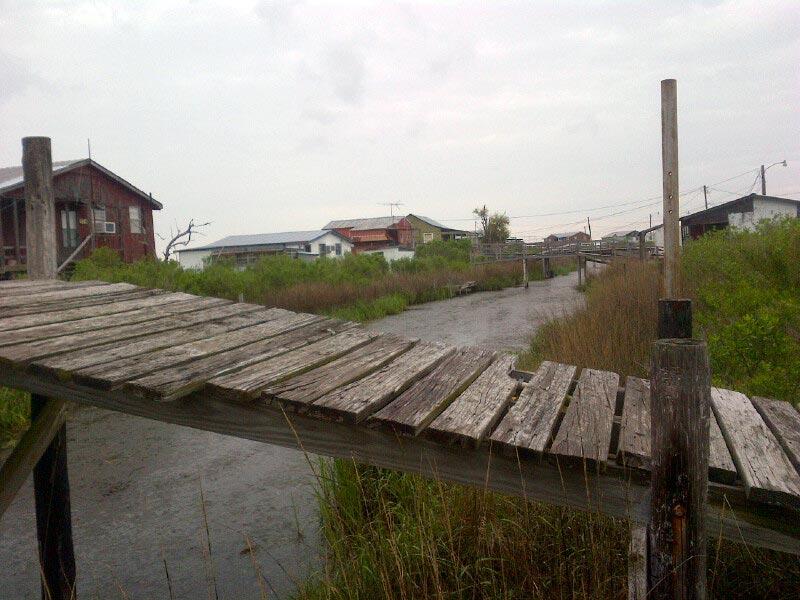Tulane professor to work with Isle de Jean Charles tribe in collaborative project
A Tulane University research professor is teaming up on a $200,000 grant from the National Academies of Sciences, Engineering and Medicine’s Gulf Research Program to support the Isle de Jean Charles tribal community of southeastern Louisiana in developing resources, tools and educational programming. These will be used to help the community of Native Americans build resilience in the face of climate change and other social and environmental challenges.
The Isle de Jean Charles Band of Biloxi-Chitimacha-Choctaw (IDJC) of Southeastern Louisiana has lost 98 percent of its land since 1955, due to a combination of threats including rising sea levels and coastal erosion. The tribe and its partners have developed a resettlement plan to move families to less environmentally vulnerable land.
Amy Lesen, a research associate professor with the ByWater Institute at Tulane, will work collaboratively with the Lowlander Center and the IDJC tribe in Terrebonne Parish to develop a model for bringing together a sustainable cross-boundary network of scientists, community members, practitioners and other professionals to combine community knowledge with scientific knowledge to address the challenges facing the IDJC community.
The Lowlander Center is a nonprofit organization based in Terrebonne Parish that supports lowland people and places through education, research and advocacy.
To address the urgent needs of retaining community cohesion, rejuvenating traditional practices, engaging youth and transferring knowledge to other coastal communities, IDJC tribal leaders and members must engage with professionals and experts from multiple disciplines, Lesen said. The tribe needs to have a process in place for successful engagement that prioritizes the needs of the community and results in appropriate projects developed in partnership.
“In this project,” Lesen said, “we will be bringing the tribe together with scholars, designers and planners to help the tribe envision a science center, a seed bank, a plant-cutting library and other elements that could be incorporated into their resettlement.”
Lesen, the Lowlander Center, the IDJC and their collaborators are among 12 recipients of awards totaling $3.2 million from the Gulf Research Program. The grants support community organizations as they conduct science-based projects designed to benefit coastal communities.

